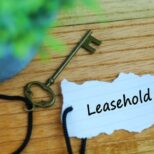
Acquiring a property title by adverse possession
15th September 2021 by Mark Preece
While the Government consults on its ideas for speeding up and simplifying the planning system, now could be a good time to sort out any problems with land in your commercial property portfolio, so that you are ready to go if a great opportunity comes along.
If you want to sell land, or borrow money to develop it, you must prove that you own it. This becomes a problem if you have occupied land for some years but have never had it formally transferred to you, as you will not have the evidence to satisfy potential buyers or lenders that you are the real owner. However, you may in fact have acquired ownership by ‘adverse possession’ and be able to register its ownership in your name.
‘People and businesses can end up occupying land they do not technically own for a range of reasons’ says Mark Preece, head of Commercial Property with Laceys. ‘There may be a sale contract which allows the buyer to occupy before completion which was never formalised; an informal arrangement which was never properly documented; or there might have been a mistake over boundaries. In some cases, an occupier might deliberately move onto vacant land in the hope of eventually taking ownership of it, and this is where squatters’ rights (technically known as adverse possession) arise.’
If you have occupied land for 10 years, even though it is not legally yours, you may be able to apply to be registered as the new legal owner. To do this, you must be able to show that:
- you are actually in possession of the land; and
- your intention was to possess it, to the exclusion of anyone else.
If you have entered into a lease agreement for the land, this will usually rule out adverse possession.
In practice, this means you (and nobody else) must have been treating the land as if you own it. You must have had exclusive physical control over the land. If there is any dispute when you apply to be registered as the owner, you will need to show evidence of that control. Examples of good evidence include fencing you have erected around the land, paving or other surfacing you have laid and buildings you have erected. The more of these you can show, the stronger your case will be.
Applying to be the registered owner
The formal process of applying to be registered as the owner, and the timescale, depend on whether the land is already registered at HM Land Registry. Your solicitor will be able to clarify this.
If the land is not registered, you must show 12 years’ continuous possession before you can apply for registration, but once you can establish this the true owner loses their title to the land and you can be registered as owner.
Different rules apply if the land is already registered in someone else’s name. You may apply to be registered as the owner after 10 years’ continuous possession and will need to supply a formal statement of the facts about your possession of the land. Your solicitor will advise you about how to draft this. Once they receive your application, HM Land Registry will notify whoever is currently registered as the legal owner, and they will then have 65 days to challenge your application. If the legal owner does not respond within that time, you will be registered.
In the event of a dispute
If the legal owner does respond, they may dispute the facts about whether you have had 10 years’ continuous possession. Even if it is clear that you have been in possession for that period, the legal owner can still ask HM Land Registry to reject your application unless you can show that one of three situations applies:
- the legal owner led you to believe that you owned the land, you relied on that assurance and it would be unfair to evict you;
- you have some other right to the land, for example you entered into a contract to buy it and paid the purchase price but somehow the legal transfer was never completed; or
- there has been a mistake about the boundaries and you reasonably believed you owned the land.
If you can show one of these grounds, HM Land Registry will inform the legal owner and it is likely that you will be registered. If none of these applies, you may still be able to get yourself registered, if you continue your exclusive possession of the land for another two years. The obvious problem here is that the legal owner now knows you are there, and they are likely to try to evict you or change the basis on which you occupy. Tactics are very important here, so legal advice is essential.
How we can help
The effort required to get yourself registered with a formal title is really unavoidable if you want to sell the land or use it to raise funds. A buyer or lender will want to know that if they need to sell the land later, no one will question whether they own it. Even once you are registered, buyers and lenders may be concerned about whether any third parties may have rights over the land or be able to restrict how it is used. These issues can usually be resolved by taking out specialised indemnity insurance.
If you would like further advice please contact Mark Preece in confidence on 01202 377800 or email m.preece@laceyssolicitors.co.uk
This article is for general information only and does not constitute legal or professional advice. Please note that the law may have changed since this article was published.



